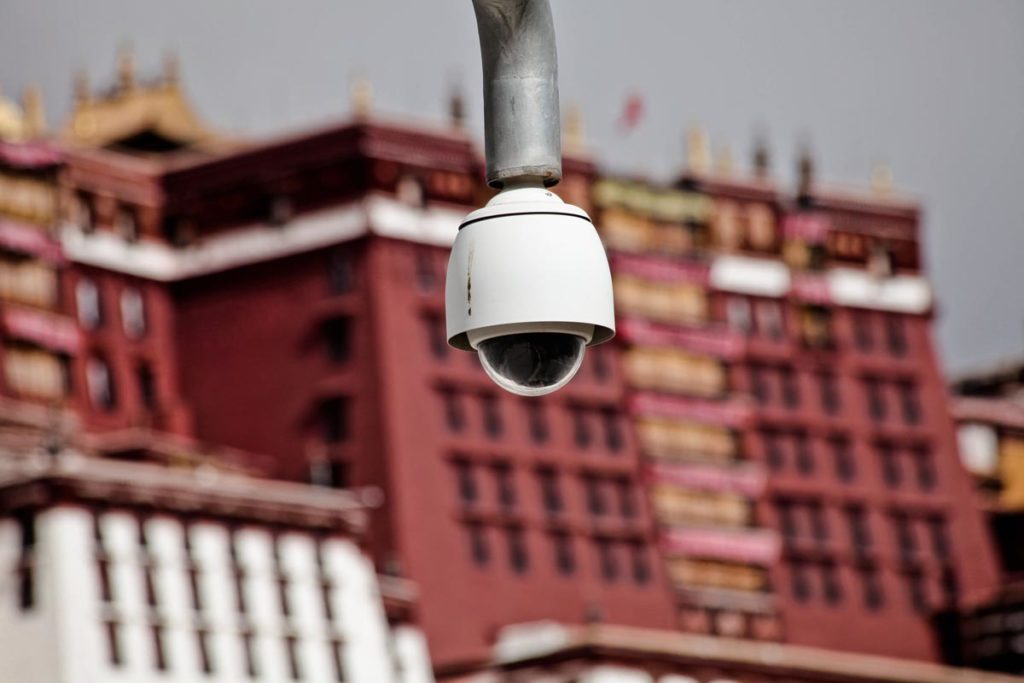China’s New Genetic Project for the Mass Surveillance in Tibet

Recently, to further tighten the surveillance noose, China has started a new project: the collection of human genetic data from the Qinghai-Tibet Plateau.[2] According to the report, the project was undertaken for the purposes of protection, management and research of unique human resources for people on the plateau and for the prevention and treatment of different highland diseases. The project plans to have two entity databases: Xining (ཟི་ལིང་) database and Lhasa database[3], both of which are to be completed by 2020. However, this project is not something new to China.
On May 15th, 2017, Human Rights Watch observers found that in September 2016, the Xinjiang regional police bureau issued two calls for a tender, which was worth around US $12 million, for the purchases of 12 DNA(Deoxyribonucleic acid) sequencers, 30 polymerase chain reaction (PCR) amplifiers, and 1,000 batches of genotyping kits. With the usage of these hi-tech instruments, it is possible to profile thousands of DNA samples within a day. Yves Moreau, a Professor of Bioinformatics and a computational biologist specializing in genome analysis and DNA privacy at the University of Leuven in Belgium, was quoted in Newsweek saying, “working at full capacity, the equipment could profile up to 10,000 DNA samples a day.”
According to another Human Rights Watch report on December 13th, 2017, Chinese authorities have started collecting DNA samples, fingerprints, iris scans and blood types from all residents in the region between the age of 12 and 65. Therefore, it is not surprising to know that under the guise of a public health program, as of December 28th, 2017, Xinjiang authorities have allegedly collected samples from nearly 19 million inhabitants in Xinjiang.
Xiao Qiang, adjunct professor at the University of California at Berkeley’s School of Information was quoted in the Wall Street Journal saying, “Marrying DNA profiles with real-time surveillance tools, such as monitoring online activity and cameras hooked to facial-recognition software, would help China’s ruling Communist Party develop an all-encompassing “digital totalitarian state.”
A few days ago, China’s surveillance prowess was in the news for locating a suspect wanted for an economic crime amidst a crowd of 60,000 concert goers by using facial-recognition technology. Hence, Professor Xiao Qiang’s assertion is already happening in China, and soon may happen in Tibet.
According to a Wall Street Journal examination of documents from police departments across China, the Chinese authorities plan to double up their current DNA trove to 100 million records by 2020. Therefore, it seems that the project on the Tibetan Plateau is included in China’s nationwide drive to profile DNA samples to control the movement of Tibetan people and further restrict their freedom. Since Chen Quanguo, the current party secretary of the Xinjiang Uyghur Autonomous Region, was also the party secretary of the Tibet Autonomous Region from August 2011 to August 2016, the author assumes that he must be personally involved in the planning and execution of the above mentioned project. The author also guesses that the DNA instruments used in Xinjiang might also be used in Tibet for profiling the DNA samples of Tibetan people. The collection of the DNA database alongside the facial-recognition technology will be very effective in locating and recognizing any Tibetan who is seen as a threat to the social stability of Tibet by the Chinese Communist Party.
However…in the U.S. regulations limit law enforcement to collecting DNA samples only from people who are arrested―or in some states, convicted of serious crime, unless the police obtain a court warrant or a person’s consent, or take samples from discarded items such as chewing gums. The DNA from those who give samples after being arrested or convicted is stored in a national network administered by the Federal Bureau of Investigation, which currently holds 13 million profiles of those convicted and nearly three million arrestee profiles…[4]
The author also estimates that, in the future, China might profile DNA samples of any foreign tourists, including Tibetans from India and Western countries, who visits the minority-populated regions in China.
Tenzin Tsultrim, PhD, is a research fellow at the Tibet Policy Institute, a think tank of the Central Tibetan Administration in Dharamshala, India.
[1] http://en.people.cn/n/2015/1005/c90000-8958235.html(Accessed on 18/04/2018)
[2] http://eng.tibet.cn/news/th/1523847712438.shtml(Accessed on 18/04/2018)
[3] (both of these are capital cities and major hubs for different ethnic groups)
[4] https://www.wsj.com/articles/china-snares-innocent-and-guilty-alike-to-build-worlds-biggest-dna-database-1514310353 (Accessed on 21/04/2018)




